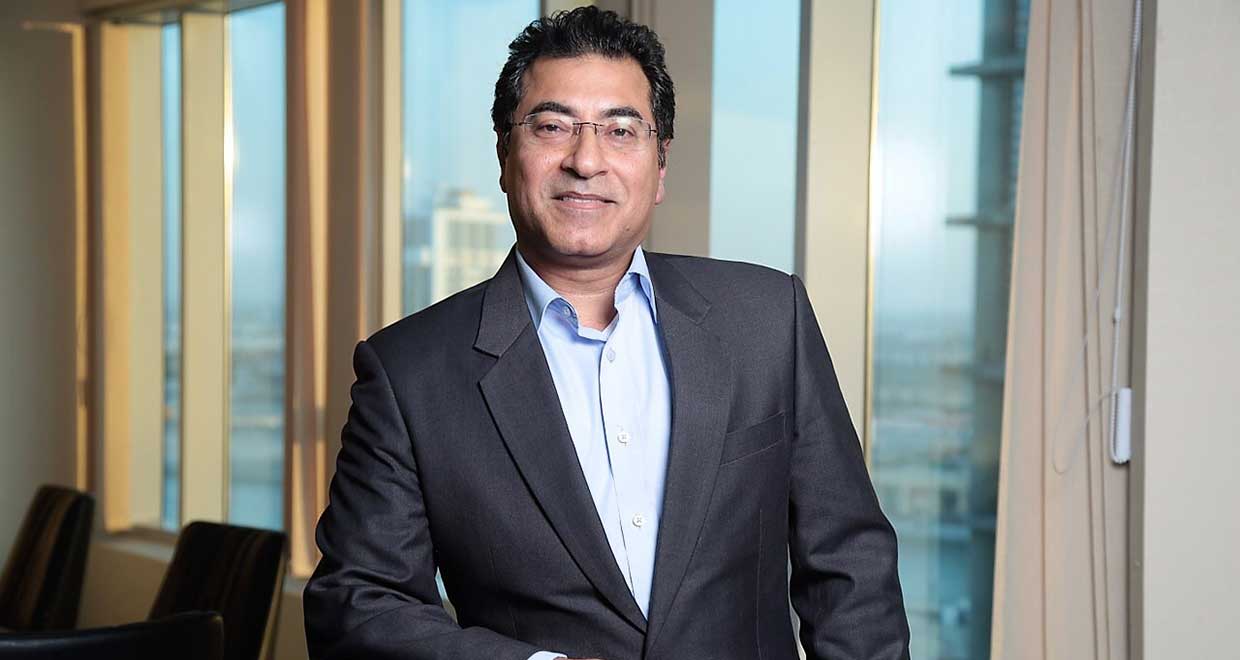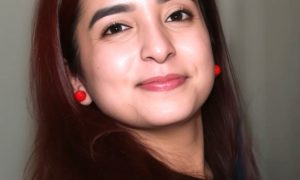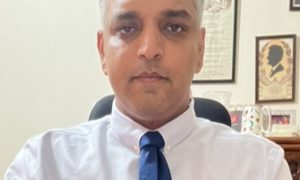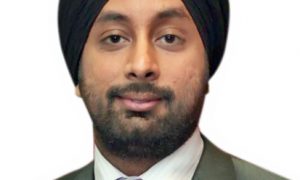Hemant Batra graduated in law from Panjab University, in 1991. He is a corporate, commercial, business and strategist lawyer. He is the founder and Chairman of Kaden Boriss Global, a legal and business strategist organization of global law firms and offices. Kaden Boriss was founded in 2003 by international and business laws specialist lawyers Hemant Batra and Preeti Batra. The intellectual property rights (IPR) in the trade mark and copyright of legal brand Kaden Boriss (KB) vests with Hemant Batra. As a Chairperson of Kaden Boriss, a Corporate & Commercial law firm, he is responsible for firm’s mentorship. His role in the law firm is to advise on strategy relating to any legal transaction or matter. He also steers cross-border & international legal transactions for clients. In the law firm he is also responsible for overseeing execution of selective legal consulting and services assignments for clients.
In this interview we speak to him about:
- Founding his own organisation
- Working with the United Nations
- His passion for music
What made you decide to pursue an LLB after obtaining a BA degree?
While pursuing a BA in Humanities, I started to eliminate the career path, which I was not inclined to embrace at all. In late 1980s, I saw everybody around me was interested in the professions of engineering, medicine or civil services. I eliminated the engineering and medicine fields because they appeared quite run-of-the-mill and unremarkable. Initially, civil services, especially Indian police services did attract and excite me. However, on closer analysis, I eliminated that option as well for a couple of reasons – one, I noticed that there was too much political interference in civil services; in fact, I found civil servants being at the mercy of politicians, all the time; secondly, I was not too impressed by the remunerative compensation of government employees. Hence, I decided on the legal profession. It had too many appealing features. I was an accomplished orator, it offered me an opportunity to showcase my oratory skills. I wanted to be a strategic counselor and successful entrepreneur. The legal field was the best option to be on my own. It offered independence and presented means of earning sufficient wealth through absolute lawful means. Above all, I wanted to be a proficient and acclaimed global lawyer. Thus, I chose legal field to be my career path.
I had chosen public administration, economics and political science as my subjects in BA. These subjects are/were very close to the legal system and commandments of law. These subjects literally became a bridge between BA and LLB, for me.
It is my strong belief that humanities and law subjects are the ideal combination, for a career in law; be it law practice or legal services.
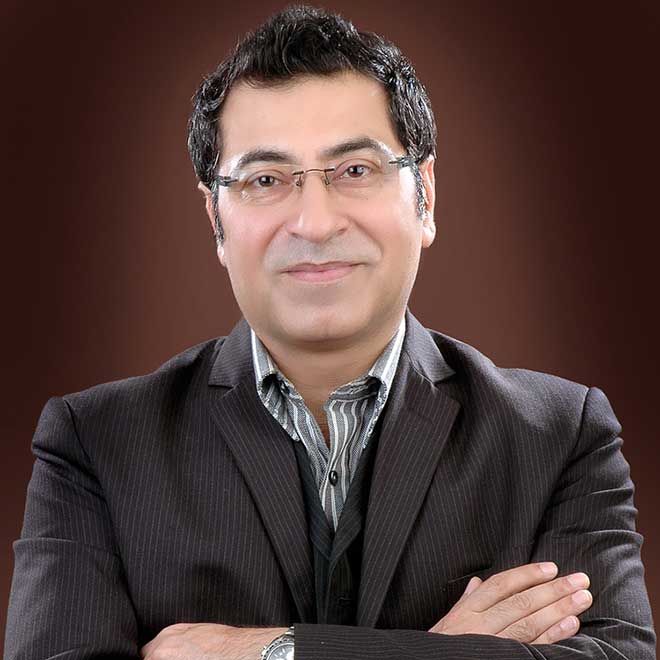
How was your experience in law school? Do you think law schools produce socially relevant lawyers?
I did my LLB from the Chandigarh Law Faculty, in the campus of Punjab University. The campus was very modern in terms of building and infrastructure. It was a stand-alone dedicated campus. The size of class or batch was not more than 100–120 students, if I remember correctly. The faculty was very strong, comprising some brilliant professors and authors. Even Senior Lawyers used to visit us as visiting faculty. The student–teacher ratio was 7:1, which was quite impressive. I had an outstanding experience as a law student. The fellow students were very friendly and teachers exceedingly helpful. I carry wonderful memories of those times. Yes, the law schools do offer great opportunities to become socially relevant lawyers by becoming part of community, pro-bono and human rights driven legal programmes. Even in my times of student life, we had these programmes. We were inculcated with the values of serving the community in part-time, compulsorily or whole-time, optionally. However, at the end these become more of self-made choices. Law schools can only show you the right path and values; they can’t hand-hold you.
Did you participate in any extracurricular activities such as moots, debates or undertake any internships in law school?
Yes, I did participate in the extracurricular activities. In fact, moots was a compulsory subject. I participated in moots in all three years. I also participated in the debates and declamation contests. Internships, in our days was meant only for the last semester i.e. sixth. This was compulsory. For other semesters, it was optional. I did use to visit the High Court as a law student to observe some key hearings. All these practical activities helped me enormously in my becoming an accomplished lawyer. In order to become a skilled lawyer, one should have multiple traits and qualities – analytical approach, patience, hardworking, articulate, clear and effective oration, humility and so on. The extracurricular activities contribute overwhelmingly in bringing out the best in you. I am of the robust view that in the legal profession practical training and experience surpasses theoretical part. Therefore, the extracurricular activities and practical training should not only be made mandatory but must be made part of day to day curriculum.
What are your areas of interest in the legal field?
I graduated and got enrolled as a lawyer in 1991. At that time the only area of law practice was litigation. In litigation, most lawyers were general practitioners. Primarily, litigation involved civil, criminal and revenue matters. I actually wanted become an arguing counsel but destiny had something else stored for me. I joined Amarchand Mangaldas & Hiralal Shroff & Co., Solicitors in 1991 as an Associate. I was working alongside Shardul and Pallavi Shroff, who were the Managing Partners of the law firm. I got exceptional opportunities as a young fresher. I do not think anyone could get such opportunities in today’s times. In 1991, each day, I was given legal briefs to argue in the Delhi High Court (and sometimes even Supreme Court and Company Law Board). They trusted my capabilities and strengths. Between 1991 and 1994, I argued innumerable cases in several courts, tribunals and forums. However, the process of economic liberalization issued in 1991 by the Indian Government started to take shape in 1994. A new field and area of practise started to emerge for law practitioners. This got to be known as non-litigation or FDI law practise. It became a fashion statement to brand yourself as a corporate and commercial lawyer. I ventured into this area of practise. I became a connoisseur of cross-border investments related documentation and regulatory work. I got tremendous opportunities to handle complicated M&A and JV transactions. I started to enjoy the globetrotting attached with this kind of law practise. From a litigation lawyer, I transitioned into a business lawyer. I walked away from courts, where I always wanted to be. I have no regrets because I thoroughly enjoyed then and even now the challenges and luxuries of being a corporate lawyer. My core areas of practise cover corporate and commercial matters, FDI, economic laws, mergers, acquisitions, cross border investments, joint ventures, corporate compliances, corporate governance, corporate social responsibility, commercial agreements, transactional documentation, private equity, regulatory work, agreements, anti-corruption, anti-bribery compliance and legal auditing.
How did you secure an appointment at AMSS?
At that time, AMSS was known as AMHS. I was waiting for my final semester results of LLB, I approached AMHS directly at New Delhi office. I religiously used to visit the AMHS law firm office to secure interview. I succeeded after a gap of one week to get an interview with Shardul Shroff. I had an interaction of about half hour with him. He was then a lawyer of about eleven to twelve years’ experience. He liked my answer to one of the questions, where I said that for me AMHS is a gurukul and you my guru to be.’ I told him categorically that AMHS was a training ground for me, hence, I didn’t expect any remuneration. I was recruited as a Trainee and then once, I got my degree and enrolment, I was designated as an Associate. At that time the recruitment was done personally by Shardul and Pallavi. The criteria was primarily instinctive and first impression coupled with honesty and smartness of the candidate. My experience was absolutely outstanding. Whatever heights in legal profession, I have attained, I owe it to Shardul and Pallavi. Right on day one, they pushed me in to the turbulent legal waters so that I could become a swimmer in the rapids. I gained experience of more than a decade in just four years. In four years, I was capable enough to give run for money to lawyers with experience of ten years plus.
What motivated you to found Kaden Boriss Global?
When I was travelling globally and that too extensively in mid 1990s and onwards, I realized that I should have an international brand with which foreign clients could relate to easily. I thought of establishing a law firm and a network of international offices with an international name so that people associate with it an MNC and not a domestic institution. Kaden Boriss is a combination of two expressions – ‘Kaden’ and ‘Boriss’. The ethnic origin of these expressions can predominantly be found in the Swedish Germanic and Slavic languages and also partially in the classical Arabic language. `Kaden’ means a Companion and Boriss means a Warrior. When this name was coined on 15th August, 2003 me with the assistance of my international financial lawyer wife Preeti W. Batra, the idea was two-fold – (1) the law firm had to become a global phenomenon with presence all across the world, hence name had to be truly international, which one and all could relate to regardless of origin, race, language or dialect; and (2) the law firm had to become an unconventional outfit with emphasis on progressive legal services and strategy. Hence, the formula was to become a `Companion’ to our clients with a `Warrior’ like instinct. In other words, in this tough world clients need a companion who is a warrior. I am the registered owner of the IPR in Kaden Boriss brand.
Initially, Kaden Boriss ventured into a highly innovative domain by assuming role of a knowledge processing consulting and legal services company. It engaged in undertaking legal & para-legal consulting assignments for Multi-National clients seeking to contract out their in-house legal, para-legal and strategic advisory, regulatory and compliance work. Between 2003 – 2011, Kaden Boriss under my leadership undertook extensive projects in Americas, Australia, Austria, Bangladesh, Bhutan, China, Czech Republic, Dubai, England, Germany, Holland, Hong Kong, Hungary, India, Indonesia, Kuwait, Italy, Maldives, Nepal, Philippines, Russia, South Korea, Sri Lanka and Thailand involving legal cross-border transactions, business acquisitions, mergers, takeover, private equity deals, commercial documentation, research on legal and para-legal issues, regulatory approvals, compliances, due-diligence, legal auditing and formulation of business strategies. Kaden Boriss operated from multiple satellite and project offices at that time. It comprised of team of Legal, IT, Software, Secretarial and Commercial professionals who are experts/specialists in undertaking high-end consulting projects of varied faculties.
One of its divisions, also provided a cost and time saving solutions to the everyday challenges of making reports, presentations and other research-based documents like legal auditing, articles on general as well as technical issues and papers amongst others for business organizations, professionals and individuals. Its services represented a logical alternative for business organizations and individuals who didn’t want to waste their precious resources on such assignments but wanted to concentrate on their core area of activity. Kaden Boriss grew to become one-stop window for solutions to all legal and para-legal problems/issues.
The only hurdle was that Indian clients initially thought that Kaden Boriss was a foreign law consulting firm like McKenzie or something, which it was not. The perception was that it was a consulting company and not a law firm. This was eventually overcome.
The traits and fame of Kaden Boriss in executing legal and para-legal work for businesses and industry leaders all across the globe with utmost integrity, confidentiality, commitment, effort and efficiency started to spread far and wide.
Hence, in 2009 Kaden Boriss formally adopted the Swiss Verein kind of structure. I and my wife Preeti W. Batra found this business model as an effective medium of offering Kaden Boriss as a single global brand with its member or group firms being able to maintain their independent status as separate legal entities as well as financially and administratively. The Kaden Boriss evolved as a commercially vibrant ‘goodwill’ service brand with ideal brand equity.
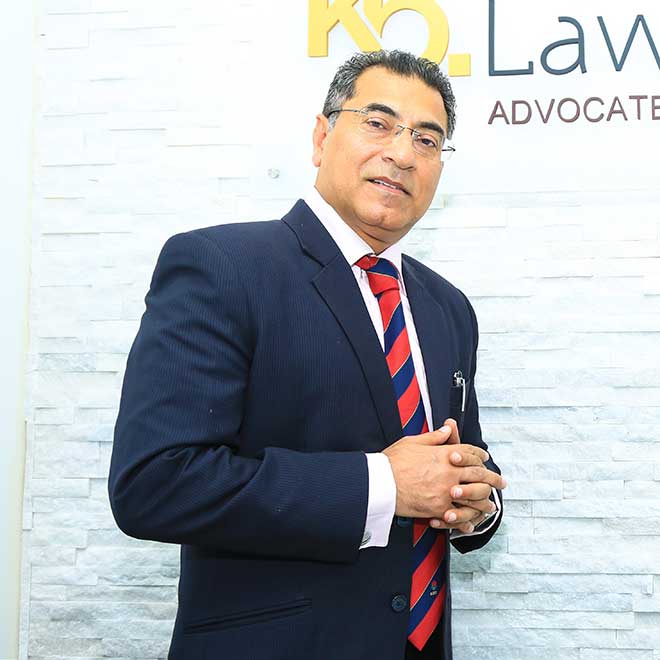
You are, and have been in the past, the Vice President of SAARCLAW. Can you tell us about the role of this organisation and your job profile as its VP?
South Asian Association For Regional Co-operation in Law, SAARCLAW, is an association of the legal communities of the eight SAARC countries comprising judges, lawyers, academicians, law teachers, public officers and a host of other law-related persons, duly registered with the SAARC Secretariat at Kathmandu and awarded the status of a Regional Apex Body Of SAARC. It owes its origin to the desire of the members of the legal community to establish an association within the SAARC region to disseminate information and to promote an understanding of the concerns and developments of the region.
SAARCLAW was established in Colombo on 24th October 1991. I have been associated with SAARCLAW since its inception. I have been its Secretary General for three terms of two years each. Presently as Vice President, I represent India on the Executive Council. Office bearers enjoy quasi-diplomatic status. I have been instrumental in helping SAARCLAW establish a permanent Secretariat in Kathmandu. In my tenure as SG, I worked out several joint ventures between SAARCLAW and international institutions like UNDP, UNAIDS, IDLO, ADB etc. The Annual SAARCLAW Conferences have been acclaimed as affording an opportunity to its members for interaction, exchange of ideas and for forging a spirit of solidarity. It has been the convention since 1995 to hold a conference of the Chief Justices of the SAARC countries concurrently with the Annual SAARCLAW Conference. This feature has become institutionalized now and offers a forum for the exchange of thoughts and views of the Chief Justices of our countries.
In its more than 25 years of existence, the members of SAARCLAW have persistently worked towards the achievement of its objectives of bringing together the legal communities within the region for closer co-operation, development of understanding, promotion of exchange of ideas and dissemination of information, and to use and develop law as a source and an instrument towards social change for development as well as for building co-operation among the peoples of the region.
You have worked closely with the United Nations in several capacities. Can you tell us about the experience?
First and foremost, any job with UN bodies requires a systematic approach. One is required to be passionate about certain areas of activities, which may be of concern to the relevant UN body. Before being eligible to undertake projects or assume positions with UN bodies, the readers interested in joining such bodies will have to execute some projects independently or with some non-profit outfits or NGOs. The vacant positions of UN bodies are widely publicized and displayed on their respective websites. The process of recruitment and hiring is very transparent and merit based.
Can you tell our readers about the role of the aforesaid organisations as well as your role as a member of UNAIDS?
(Hemant has been a member of UNAIDS and has also been a Regional Observer at the Global commission on HIV and Law. He also works in association with UNDP to address the issue of AIDS.)
It is officially estimated that over two million people in India are living with HIV. Though unofficial figures could be much higher. In other words, the people affected with HIV in India equal the population of cities like Chicago, Houston, Paris and Rome. Another example being that HIV affected people in India equals population of two Mauritius put together. Children (less than fifteen years) account for 6.54%, while two fifth (40.5%) of total HIV infections are among females. I have been working very closely with various UN bodies and international institutions working for the upliftment of marginalized population, be it LGBT community or sex workers. I was nominated to some key committees of UNAIDS, UNDP and UNESCAP; and also IDLO to facilitate diverse projects and programmes in resolving legal hurdles in dealing with people affected with HIV and AIDS. I helped in orientation of several stake holders and also introducing new legislation in South Asia to ensure that there was no discrimination encountered by the people especially women affected by HIV and AIDS at their work place and hospitals. I was instrumental in getting key members of the judiciary, executive and legislature from most South Asian countries on these committees. Several publications were co-authored and edited by me in this direction. India is severely affected by HIV and AIDS. Government and Judiciary have taken some fundamental steps in the direction of dealing with this reality.
Kaden Boriss, in association with National university of Singapore, founded an initiative called ‘International Infrastructure and Construction Law Arbitration Moot (IICLAM)’. What was the reason behind doing so? Why did you choose this particular topic for the moot? How do you think mooting contributes to a law student’s holistic development?
I have worked very closely with an eminent Professor from NUS, Prof. Alan Tan. He was Vice Dean in the Law Faculty at the relevant time. We both decided to bring Kaden Boriss, NUS and Singapore International Arbitration Centre (SIAC) under one roof to deal with the most challenging legal proposition in the developing nations. We identified infrastructure as the key pillar of development in any developing nation. The transactions of infrastructure involve several contracts and agreements with serious and complicated legal implications. Through IICLAM, we resolved to engage the next generation lawyers i.e. law students in resolution of legal disputes in the infrastructure – construction law related matters. The moot competition also enriched law students’ knowledge on the ADR mechanism.
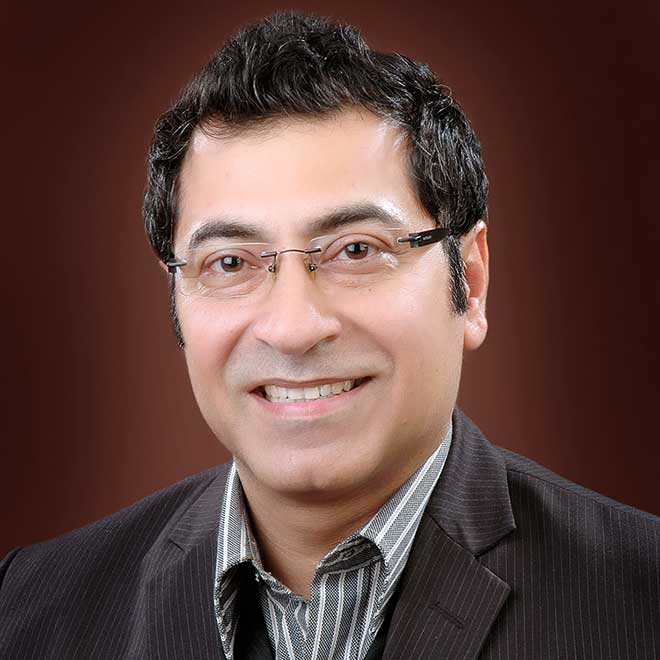
You are a senior expert at Geoman Bind, a legal and policy research think tank. Can you tell our readers about the nature of work you do there, as well as the importance of think tanks in policy making?
This is the future of legal and policy arena. Goeman Bind HTO is a private non-profit international legal and policy advisory and research think-tank. It is cerebrally and academically supported by patrons from Australia, China, Dubai, France, Germany, Holland, Indonesia, Malaysia, Romania, Russia, Singapore, Slovakia, USA and UK. It stimulates legal experts and academia to offer knowledge to the patrons and inspires policy specialists to share expertise with the recipients. It engages in legal and policy research and advisory while creating a knowledge bank within reachable horizon. Goeman Bind HTO is a unifying process or manifestation of valued and iconic traits of expert legal professionals. It is unique fora of research, resource and legal advisory. This not for profit initiative of combining advisory, research and a think-tank stream under one banner was first conceptualized in 2008 in the form of a platform of like-minded intellectuals, professionals, experts and academicians in the field of law and policy. Goeman aims to bring under one roof about 50 leading experts and academia in the legal and policy gamut from across the world who could afford the utmost excellence in research, recommendation, opinion and advisory on a complete array of legal issues and policy matters. Goeman provides for a prospect to experts and academia in the legal and policy gamut from all across the world, carrying knowledge and well-versed deliberation to the community dialogue of legal and policy strategy sets. Goeman is projected to become a niche global network of highly qualified academicians, legal and policy advisers. I am involved in couple of legal and policy projects dealing with child labour and child abuse. I am also moderator and referee for some research projects.
You are the chairman of the South Asia committee of the Indian National Bar Association. Would you tell our readers about the work of the INBA and your role in it?
I am yet to get fully involved in this particular task. Due to paucity of time and other prior engagement, I have not been able to give much time to INBA. But I propose to involve INBA in the forthcoming SAARCLAW conference in Colombo. INBA has tremendous potential and its live wire Kaviraj Singh is a man of amazing abilities and ideas. He is a man who could be highly relevant in bringing about positive changes in the lives of young legal professionals.
Do you find that the Indian education system requires improvement?
(Hemant has been a visiting faculty at the Indian School of Business and the FORE School of management.)
Yes definitely, the Indian system requires fundamental reforms. First and foremost, we need to grow out of the mental block of professional degrees. Profession has nothing to do with professional degrees. We need to inculcate and encourage the natural instincts amongst our students. If any student is good in poetry or music or sports or drama, we need to inspire him or her to embrace the same as a career. In the Indian dispersion as to career path, we have a pre-set mind that career means being an engineer, doctor or lawyer; and rest follows. It is important that students should be given an option to move and shift from their original courses as is possible in US. Indian students get stuck with their courses what they choose at the first instance. It is important that down the line, if that particular course doesn’t interest them, they should have the option of choosing or moving to another course. Further, practical aspects need to be introduced more and more in any career path. Regarding, advise to the students, I would only say follow your passion not the flock. If your passion becomes your profession, sky is the limit. Accomplishment is a relative term at the end of the day.
You are greatly interested in music. Can you tell us about this interest and how you have pursued it?
Music is like meditation for me. It is a means of recharge. I have not had any formal training in music. I started composing and arranging music in 2002. I made a small studio at home in which, I would disappear for hours together. Now, I have an ultra-modern studio with state of the art gadgets and equipments. I launched my brand label `Urf Hekbat’. Urf means alias or also known as. Hekbat is a combination of He for Hemant K for Kumar and Bat for Batra. Initially, I was hesitant to share in the public domain that I was doing music, so I launched this brand name. I launched twin albums of lounge music genre in 2012, which was a big hit. My music started playing in international night clubs and lounges and pubs. In many fashion shows abroad including Berlin fashion show, models walked ramp on my music. I have no commercial agenda for music and it is mere hobby or should I say little more than a hobby. With experience, I can now not only compose music on my own but also create videos for my music tracks. When I was approaching 40s in my age, I felt I was burning out fast in search of fame and wealth. God was really kind to me as by the age of 40, I had earned enough that I could retire and settle down without doing any further work. But this had come at the cost of humongous hard work and stress. Hence, to continue further in profession, I needed a stress-buster hobby and nothing could have been better than music.
You have pursued courses in corporate law and the procedural laws of the United States at Harvard Law School and the University of Pennsylvania respectively. How have such courses helped you in your career?
Both my children are studying in the United States. I really like the US system of education. I was invited by Harvard Law School to be part of their project regarding legal profession and its international dimensions. This project was being undertaken in collaboration with Indian School of Business, Hyderabad. I became part of this project and gained a lot in terms of experience. I was given lecturer’s role as well. In so far as University of Pennsylvania is concerned as I mentioned that my children live in USA, I wanted to get hold of the basics of US laws, hence, this course.
What are the challenges you have faced in building your career as it stands today?
I compare legal profession with a space shuttle. When the space shuttle takes off from the launch pad, it emanates huge fire and steam because it assumes too much stress and pressure. Many a times space shuttles blows off and burns while if it doesn’t it goes into the orbit – universe. Likewise, legal profession in the initial years is very testing and stressful but if one can withhold that pressure and steer on with hard work; sky is the limit. I struggled and worked really hard in the initial 5-8 years but after that the growth was vertical. I achieved my targets and aspirations quite early in my career. This profession is very fulfilling and accomplishing. It gives you independence, freedom and command in every which way. It only expects hard-work, discipline and accountability.
What are the characteristics you would look for while recruiting young lawyers?
Predominantly, I try to see through a candidate in a way that I could identify if he or she has an urge to learn. Legal profession commences with a learning process and then turns into an employment or job or a remunerative arrangement. If one is keeping fiscal expectations in the forefront then he or she is not my choice. Remuneration is important but not fundamental. Learning and training is everything in the initial years. I also look for a cutting edge. Why should I hire you? Is my standard last question. The candidate has to show me, why him or her over others. CGPA is one of the features, we look at but that is not the whole and sole deciding factor.
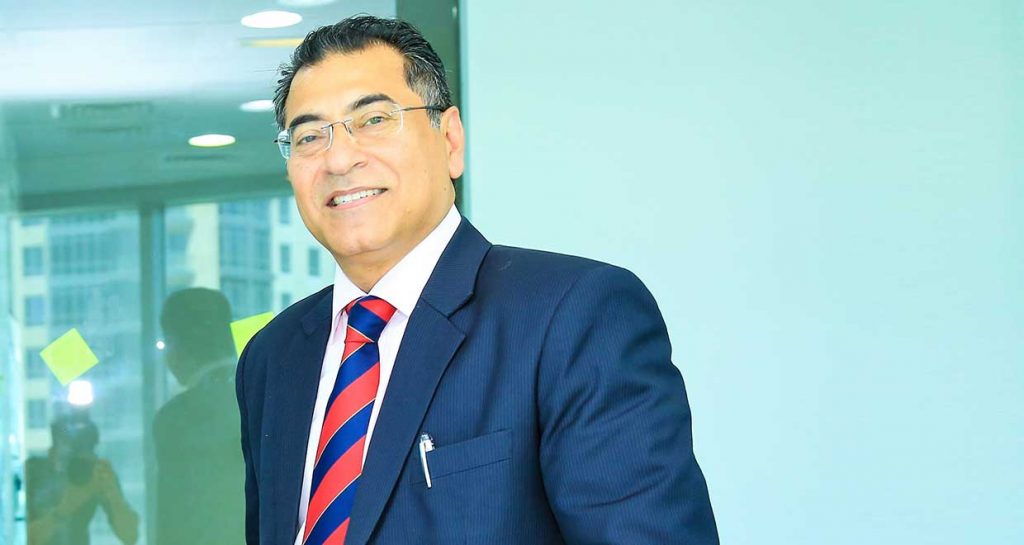
How have you used your media exposure to influence specific aspects of the legal discourse in India?
(Hemant has been invited to express your opinion in mass media such as newspapers, magazines and TV shows. You wield unique influence over the legal discourse in India.)
When you become an experienced legal professional and lawyer, you become a significant resource for any kind of media and medium. I have always believed that experience and knowledge not shared is a waste. I have selflessly shared knowledge at any given opportunity.
What do you think are some of the legal challenges India’s legal fraternity faces today?
I think in today’s times the biggest legal challenge our fraternity faces is coping up with the ever changing technology. Those who will not change with the changing needs of time will get wiped out. Way back in 1996, a distinguished law professor from UK, Richard Susskind in his book `The Future of Law’ noted that changes in technology will fundamentally, irreversibly and comprehensively change legal practice, the administration of justice, and the way in which non-lawyers handle their legal and quasi-legal affairs. Law has to be viewed as a business and a profession. In fact, to better understand the transformation of legal practice from a profession traditionally made up of small independent firms to a multi-billion dollar global business; Harvard Law School had long back established the Center on Lawyers and the Professional Services Industry. “Law firms and other professional service providers are now a critical part of the global economy,” said Harvard Law School Professor David Wilkins.
How can India better its legal regime so that it is more efficient, inclusive and in alignment without nations development goals?
I think this can be achieved by opening up the legal profession beyond borders, introducing a high notch of accountability so as to discipline the legal professionals and carrying out day to day systematic orientation. We need to realize that hundreds and thousands of students graduate each year in law and eventually get enrolled as lawyers. There is a massive gap in theory and practise. We need to bridge this gap by orientation and proper placements.
Can you describe a regular day in your life for our readers?
For me it is a five day week in so far as work is concerned. I start my day early, I am in office by 7:30/8:00 AM. I work at stretch be it desk work or meetings until 2:00 PM. I take lunch and rest between 2.00 – 3.30 PM. I am back to work and wind-up around 7:30/8:00 PM. I try to keep meeting outside office for not more than 2 days (preferably one day) a week. Saturday is a hobby day for me when I do music compositions in my music studio. Sunday is totally for family and friends. I am travelling out of Delhi or India seven to ten days a month on an average.
How would you describe your long and illustrious career in the legal field?
I think some of the most eventful or accomplishing landscapes of my career are as follows –
- Opportunity to work very closely with Shardul and Pallavi Shroff gave me an initial head start in profession.
- My association at the threshold of the profession with legal luminaries like Justice P.N. Bhagwati, Justice A.M. Ahmadi, Justice R. C. Lahoti, Justice U. C. Banerjee, Mr. P.P. Rao and Mr. K. K. Venugopal boosted my self-esteem and gave me a confident pitch.
- My association with SAARCLAW at a very young age and victory in all elections at the domestic and international level for the offices therein, gave me tremendous visibility.
- I was assigned complicated international legal transactions for global clients like Bayer, Suzuki, LG, Godfrey Philips, Kuwait Royalty, AMEX, WU and many more. These transactions took me across borders. I began to be getting recognized as a global corporate and commercial layer.
- When I founded Kaden Boriss, it was an ultimate feather in my legal cap.
- And now with Goeman Bind HTO, I stand recognized as a Policy Expert and Thinker.
What advice do you have for our readers who are primarily college students?
My advice to the young students is that keep your feet firmly on the ground. Legal profession is the only profession in the world where growth is vertical, if you are determined, hard-working and disciplined. These three qualities work like a magic potion for assured success. And always be humble.

